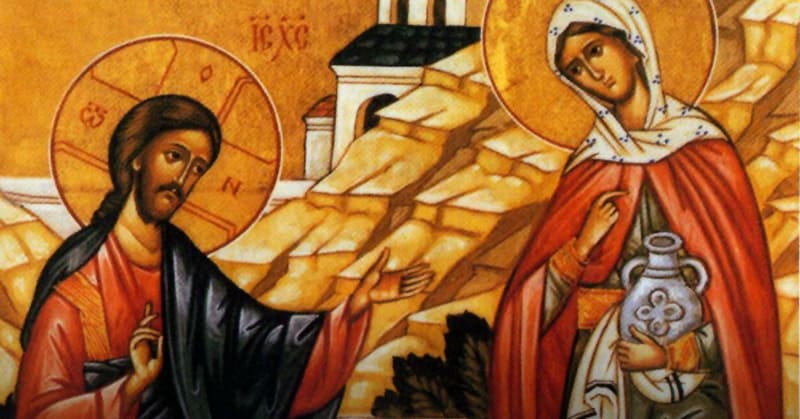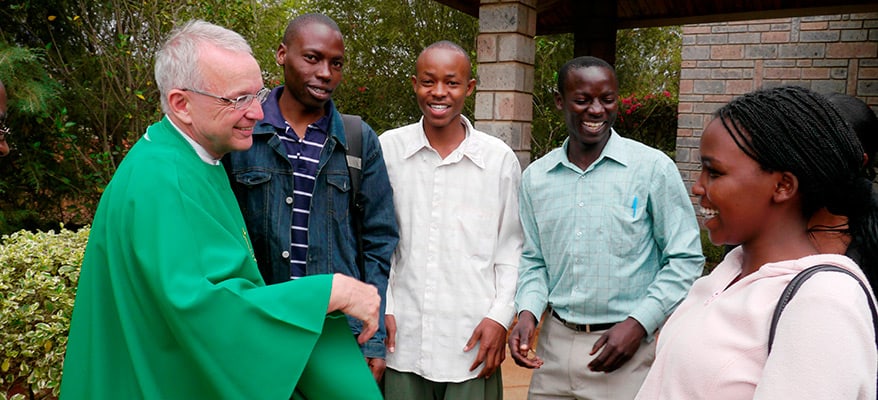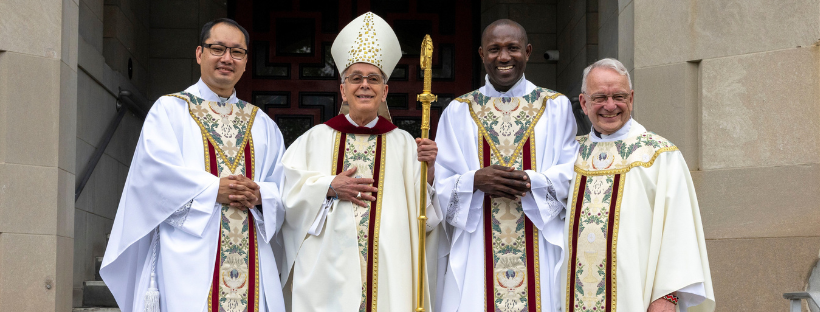Today’s Gospel, a deeply touching human-interest story, describes the lively encounter of Jesus with the Samaritan woman at Jacob’s well. Their conversation revolves around water, about various senses of “living water,” and how our thirst for God may be satisfied.
This reading from John’s Gospel along with the first reading from Exodus (both centered on life-giving water) form part of the Church’s catechesis for those who are preparing for baptism on Holy Saturday evening. In addition, the readings remind all Christians of their own baptism and their obligation to live as God’s children “born through water and the Spirit” (Jn 3:5).
Our brief meditation today focuses on “thirst,” a common human experience. Our body is composed of 75 percent water and 25 percent solid matter. To provide nourishment, eliminate waste, and conduct all the thousands of activities in the body, we need water. The experience of thirst, the desire to drink something, is our body’s natural indication of the need for hydration. Indeed, water is essential for life.
Our Thirst for God. All people “thirst” for fullness and completeness in their lives. Thirst drives us to work hard at procuring the necessities for daily life. We struggle to provide security for ourselves and our families. At times, our “thirst” may be so strong that we become lost in a fretful search, forgetting what may be the true “living water” that will satisfy us.
The Samaritan women also found herself on such an endless search; she had already married five men. In Jesus she found the true “living water.” She rejoiced in her discovery of the Messiah; she went immediately to call the townsfolk to come to the “streams of living water” that “well up to eternal life.” Her genuine thirst, not her superficial desires, had been satiated.
God’s Thirst for Us. We seek to move beyond our desires and to appreciate God’s desire for us. Mother Teresa asked her sisters to often reflect on Jesus’ words from the cross: “I thirst” (Jn 19:28). In the Missionaries of Charity convents, these words are often placed next to the crucifix in the sanctuary. Though first spoken on Calvary, they continue to echo throughout all times and places.
Friends, allow yourself (as did the Samaritan woman) to feel Jesus’ thirst for you: ► I thirst for you. Yes, that is the only way to even begin to describe My love for you. ► I thirst for you. I thirst to love you and to be loved by you—that is how precious you are to Me. ► I thirst for you. You must never doubt My mercy, My longing to bless you and live My life in you. ► I thirst for you. For Me there is no one more important in the entire world than you. ► I thirst for you. All I ask of you is that you entrust yourself to Me completely. I will do all the rest.
James H. Kroeger, M.M.
Third Sunday of Lent
Open our eyes, Lord, to the fact
That our greatest hunger, our deepest thirst,
Our strongest desire is for the meaning
That can only be quenched, satisfied, and
Fulfilled when we draw from the wellspring
Of your mercy, grace and love for us.
You who know the depth of the longing
Inside the human heart, stop me from
Seeking for joys that pass, and love
That can neither fill nor satisfy for
A lifetime much less than for all eternity.
O Jesus, my Lord, my God, my all,
Teach me to love and serve you as I ought
And as you deserve.
May your unconditional love overwhelm
My guilt, shame, and embarrassment
For sins past and present that I never
Again hesitate to reach out to you
Who have been waiting for me
From all eternity. Fill me once more
With your love so overflowing that
I cannot help but share your blessings
With the whole world.
Amen
Prayer by Father Joe Veneroso, M
Photo: Maryknoll Sisters at Selma, March 7, 1965. (Photo courtesy of Maryknoll Mission Archives)




